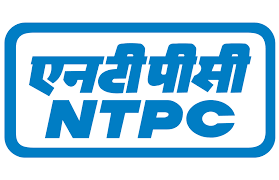KOLKATA: The noose around shell companies has tightened as the government has banned 58,000 bank accounts of 35,000 alleged shell companies who have deposited and withdrawn over Rs 17,000 crore during since demonetization.
After receiving inputs from 56 banks, the Ministry of Corporate Affairs restricted the operation of the bank accounts of the shell companies.
These companies were not disclosing their financial details such as tax returns. Directors associated with these companies have been barred from banking transactions.
In one case, a company which had a negative opening balance on November 8, 2016, deposited and withdrew Rs 2,484 crore after demonetization.
Another company was found to have as many as 2,134 accounts.
The Ministry of Finance said, “Apart from restrictions on bank accounts, action has also been taken to restrict the sale and transfer of the companies’ moveable and immovable properties until they are restored.”
The state governments have also been advised to take necessary action by disallowing the registration of such transactions.
The Directorate of Investigation, Kolkata, has busted a massive black money racket and identified 64,811 beneficiaries and shell companies involving bogus tax exemption of nearly Rs 38,000 crores through listed companies. The first detailed report on shell companies, prepared by the DDIT (Investigation) led by Dhruv Purari Singh, IRS, has been sent to the Prime Minister’s Office (PMO) and Central Board of Direct Taxes (CBDT) in 2015. After this report, the PMO constituted a Special Task Force under the joint chairmanship of Revenue Secretary and Secretary, Corporate Affairs, to monitor the drive against defaulting companies, with the help of various agencies. The Special Task Force has so far met five times and has initiated action against several defaulting companies.
The information about these suspect companies has been shared with enforcement agencies including the CBDT, Financial Intelligence Unit (FIUs-Ind), Department of Financial Services and Reserve Bank of India (RBI) for further action. Companies have also been identified for investigation under the Companies Act, 2013, and necessary operation is underway including criminal prosecution.
To curb black money, the government has taken various steps. RoC has disqualified directors on the board of such companies that have failed to file financial statements or Annual Returns for a continuous period of three fiscal years, during 2013-14 to 2015-16. Around 3.09 lakh directors have been affected by this action. A preliminary inquiry has shown that there are over 3,000 disqualified directors in more than 20 companies, which is beyond the limit prescribed by the company law.
It was recently that the SFIO authorised the director, additional director and assistant director to arrest any person believed to be guilty of any fraud punishable under Section 447 of the Act, which defines fraud, stringent punishment including imprisonment up to 10 years is stipulated. The SFIO will also house a software application, to be developed soon, put in place an ‘Early Warning System’.
The government has also constituted a high-level committee to suggest the revamp of the disciplinary systems against Chartered Accountants, Company Secretaries and Cost Accountants. The government is also planning to set up a National Financial Reporting Authority (NFRA), an independent body, to test check financial statements, prescribe accounting standards and to take disciplinary action against errant professionals.
Courtesy: DNA








